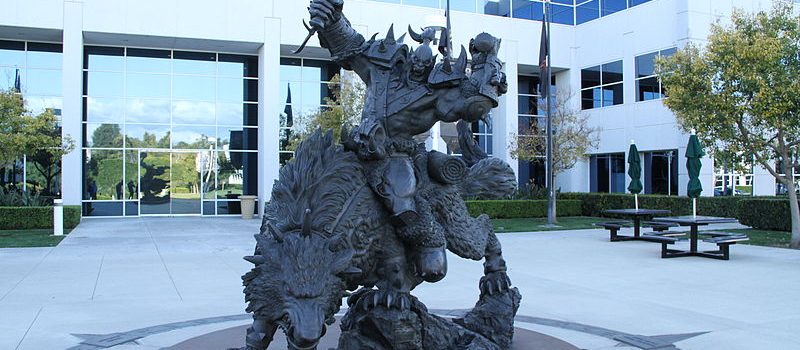
In a surprising revelation, Bobby Kotick, the CEO of Activision Blizzard, recently shared that the company had once considered acquiring Time Warner, the owner of Warner Bros. and HBO. The ambitious plan was contingent upon AT&T’s failure to complete its $85.4 billion acquisition of the media and entertainment giant. Unfortunately for Activision Blizzard, the deal went through in 2018, thwarting their aspirations. Kotick expressed his vision for combining the intellectual property of both companies to create an extraordinary entity, encompassing gaming, film, and television content.
The Missed Opportunity: During an interview, Kotick disclosed that Activision Blizzard had secured the necessary funds and was poised to make a move if AT&T’s acquisition fell through. The plan was to leverage Time Warner’s rich portfolio of intellectual property and transform it into captivating video game experiences, while simultaneously allowing Time Warner to utilize Activision Blizzard’s IP for film and television projects. It was an ambitious proposition that had the potential to reshape the entertainment landscape. However, with the successful completion of AT&T’s acquisition, Activision Blizzard’s plans were abruptly halted.
Warner Bros. Discovery’s Gaming Success: Since the merger, Warner Bros. Discovery, the successor to Time Warner, has made significant strides in the gaming industry. One notable achievement is the success of the game Hogwarts Legacy, which has become the fifth game franchise to surpass $1 billion in value. This accomplishment highlights the potential synergy between the worlds of film, television, and gaming.
Microsoft’s Attempted Acquisition: Presently, Microsoft is actively pursuing a $69 billion deal to acquire Activision Blizzard. The merger has gained approval in nearly 40 countries, including the European Union. However, antitrust authorities have raised concerns, leading to legal obstacles. In April, the U.K. Competition and Markets Authority expressed intentions to block the deal, citing concerns over its impact on the cloud gaming market. Microsoft has appealed this decision, and the case will be heard in court in July. Additionally, the U.S. Federal Trade Commission has filed a lawsuit seeking to block the acquisition, citing worries about potential negative effects on competition.
The Future of Activision Blizzard: As Activision Blizzard navigates the potential acquisition by Microsoft, it finds itself at the center of a complex legal battle. The outcome of these legal proceedings will have significant implications for the gaming industry and the future direction of both companies involved. The clash between antitrust concerns and corporate ambitions underscores the delicate balance between fostering competition and driving innovation.
Conclusion: Bobby Kotick’s revelation about Activision Blizzard’s failed attempt to acquire Time Warner sheds light on the company’s ambitious plans to create a powerhouse of gaming, film, and television content. While the opportunity was lost due to AT&T’s successful acquisition, the gaming industry continues to evolve, with Warner Bros. Discovery making its mark through successful game franchises. Meanwhile, Microsoft’s pursuit of Activision Blizzard faces regulatory challenges in multiple countries, further shaping the landscape of the gaming industry. The outcome of these developments will undoubtedly shape the future of Activision Blizzard and have far-reaching implications for the wider entertainment ecosystem.




